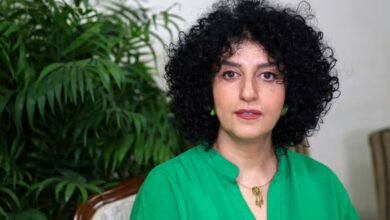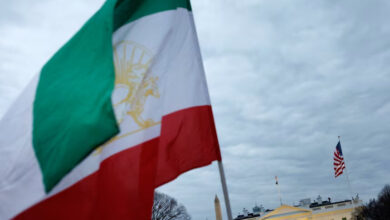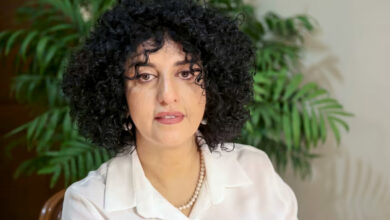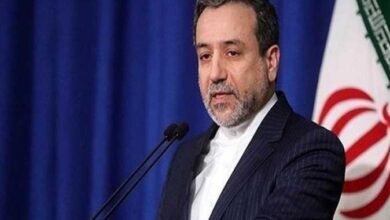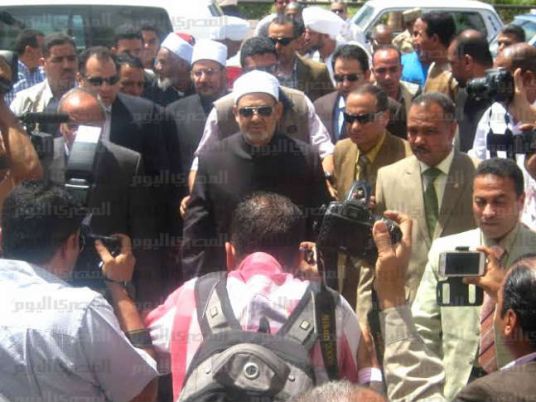
Many have blamed Muslims for the escalating waves of violence and extremism in the world. How can the Al-Azhar change this if it is accused of suppressing freedom, creativity and sciences?
In the first part of the interview, the Al-Azhar Grand Sheikh rejected such accusation, contending that the Al-Azhar is the father of sciences and that it was this very institution that has transferred knowledge to Europe.
In the second part of the interview, the Al-Azhar Grand Sheikh says that he is waiting for the religious leaders of Iran and Iraq to issue fatwas that forbid the insulting of the prophet’s companions and wives so as to avoid the spread of evil, adding that there are some who seek to peddle the shia doctrine in the Arab region by tempting the poor with money.
Q: Let me start with the controversial question that has never been resolved. Is Islam really a religion and a system of governance? Has this notion been misused? What is meant by separating religion and state?
A: I will refer to the Al-Azhar document that was issued right after the 25 January revolution about the nature of the state that we seek. In it, we literally said that the first principle is to establish a modern, national and democratic state based on an accepted constitution that separates the authorities of the state, defines the framework of governance and ensures the equal rights and duties of citizens. It is a state in which the legislation authority is in the hands of the representatives of the people. This is in accordance with Islam because Islam never knew what was known in other cultures as a theocracy that controlled people.
Q: Does this mean you are in favor of a democratic system?
A: Certainly. The document talked about a democratic system based on free and direct elections, the modern version of Islamic Shura. It is a system that guarantees pluralism and peaceful transition of power, determines incumbencies, monitors performance and holds officials accountable before the representatives of the people.
The document stresses commitment to freedom of thought and opinion, and considers citizenship the basis of responsibility in the community.
Q: But extremists deny the modern system of government and consider democracy as being against the Sharia. What would you say to that?
A: The position of the Al-Azhar is clear. It supports values and advocates the establishment of a state as required by the exigencies of the modern world. It should be based on the visionary legitimacy of the heritage of the Al-Azhar scholars and others that refutes a theocracy that certain forces try to impose by claiming that it is consistent with Islam.
Q: You have warned of Iran trying to peddle the Shia doctrine in the region. Is that doctrine more dangerous that the Islamic State that was proclaimed in Syria and Iraq?
A: No. The Shias are our brothers in Islam. And there is a clear fatwa issued by former Al-Azhar Grand Sheikh Mahmoud Shaltout on a rapprochement between Sunnis and Shias. We only object to certain issues, such as insulting the prophet’s wife Aisha and his companions. Such shoddy practices have not been faced as should be. Also, we object to attempts to peddle the Shia doctrine among Sunnis by tempting the poor with money.
Q: Do you fear that Egypt may turn Shia?
A: This is not possible. It may happen to an ineffective minority. What I fear is that such attempts may escalate tension and rifts that could adversely affect the stability and homogeneity that characterize the people of Egypt. I believe peddling the Shia doctrine has ulterior political motives.
Q: You called on the religious leaders of Iraq and Iran to issue explicit fatwas that forbid the insulting of the prophet’s wives and companions. Was there any response? And when will the conflict between the Shias and the Sunnis end?
A: There have been such fatwas but I want them explicit and unequivocal from major references that have power and influence in order to settle this matter once and for all. The problem is that some political and religious forces exploit extremism to achieve certain gains. This destroys nations, as we have seen in Iraq.
Q: Do you think the conflicts between IS and the Houthis in Yemen, and between the Kurds and the Shia in Iraq, are Shia-Sunni conflicts or political conflicts?
A: They are political conflicts that use religion as a weapon. Giving political conflicts a religious character increases violence and becomes a problem in itself. They know how to use that weapon, but they do not know how to stop it.
Q: What is the Al-Azhar's stance on the independent reasoning of religion? Should it be limited to the Al-Azhar scholars? And how should it be controlled?
A: The Al-Azhar has always supported the independent reasoning of religion as regards modern issues of life that require a legitimate opinion.
Al-Azhar realizes the diversity of views and perspectives as long as they are based on well-known religious rules and regulations. The reasoning of such issues requires deep knowledge of mundane sciences, specialized studies of the Arab and Islamic heritages, analytical capabilities and insight. Religious scholars inside and outside Egypt can help in this. We have always exchanged views with Islamic institutions in Asia, Europe and America. For the Al-Azhar of Egypt is an institution with a global character.
Q: When will the voice of the Al-Azhar be heard abroad?
A: We are heard abroad, and our image in the Muslim countries is bright. Unfortunately, we are being attacked from within, but I am sure this will end soon.
Q: What do you do to correct the image of Islam in the West?
A: This is the responsibility of 1.7 billion Muslim. They should present the right image of their religion, which was damaged by certain militant forces that are backed by the Western media and by Western research and academic institutions that claim neutrality but are actually dishonest. The result was that Islam in the eyes of the West became the religion of murder, hatred and destruction.
We must fight extremism at home. Islamic countries must allocate funds for that purpose, religious institutions must disseminate modern thought and Muslims living in the West must present a good example.
Q: What about the role of the Al-Azhar in Africa?
A: Our message extends to all Muslims anywhere in the world, especially in Africa where difficult circumstances can produce extremism, as we have seen in Nigeria.
We teach the students of African countries for them to return as preachers, and we send educational missions to them.
Q: Are you concerned with the growing number of atheists in Egypt?
A: Yes I am because this phenomenon produces confusion and division in a society that is religious by nature. We need exact statistics of their real number so that we do not underestimate or ignore them. I think the media is blowing this phenomenon out of proportion.
Q: Do you think the violence of the Brotherhood and IS made people turn away from religion and become atheists?
A: Yes. Add to it the smooth transition of ideas by the information technology and the desire of young people to imitate Western exotic ideas. Yet, in many occasions, calm dialogue with those youths can correct misconceptions.
Q: Al-Azhar Undersecretary Abbas Schuman was heavily criticized, but the institution did not issue any statement in this regard. Why?
A: I have reservations about campaigns attacking certain people in person. Shuman is not the only person from the Al-Azhar to be attacked. Some are attacked without charge.
Unfortunately, the atmosphere in Egypt now allows for indictments without proof. If we continue to throw allegations that a certain person still supports the old regime or another supports the military and so on, we all will be attacked.
People make mistakes. Some may learn from them. But everyone has the right to freedom of thought and opinion. Thank God and thank the 30 June revolution that we have arrived to safety.
I have personally been severely attacked by the Muslim Brotherhood when they were in control. I felt sorry at the time that I had to talk about a duty that was assigned to me. But I will personally bring to account anyone from the Al-Azhar that calls for the agenda of the Brotherhood.
Q: Some believe that the “Family Home” anti-sectarian initiative circumvents the law. What do you say to that?
A: That initiative, which was fiercely attacked by the media, addressed many problems that lead to massacres between Christians and Muslims. We helped the Christians and Muslims of Minya to sit together and resolve their disputes amicably. We also ended a deadly feud in Aswan that killed 28 people.
Q: Some are afraid to pay money to the Zakat House, fearing it would go to the financially troubled government. What do you say to this?
A: The Zakat House is a system that I saw in Kuwait. I liked it and decided to apply it in Egypt to reassure people that they pay for the right thing.
Q: Does it resemble the Muslim Bait al-Mal?
A: To a great extent, although Bait al-Mal used to spend on the government. We have the 8888 bank account whose money we spend on the Zakat that the Quran identified precisely. And we have the 7777 account for voluntary charity, such as building schools and hospitals for the poor. The system is managed by experts from Egypt, Kuwait, Bahrain and the UAE.
Q: What about women’s rights?
A: The Al-Azhar took part in drafting the constitution, which gives women their full rights. Sharia liberated women from many responsibilities. In many of our jurisprudence schools, women are not obliged to serve her husband and kids, while obliging men to be the breadwinners.
Today we see women as MPs, ministers and might see them as governors in the upcoming reshuffle.
Q: Can a woman run for President?
A: Why not? A woman cannot run for caliph, which is not the case here. But why are you asking about this? Wouldn’t it be more appropriate to ask why women in rural areas are deprived of their basic rights, such as the right to inheritance? Anyway, you go ahead and run for president, and I will vote for you.
Edited translation from Al-Masry Al-Youm

